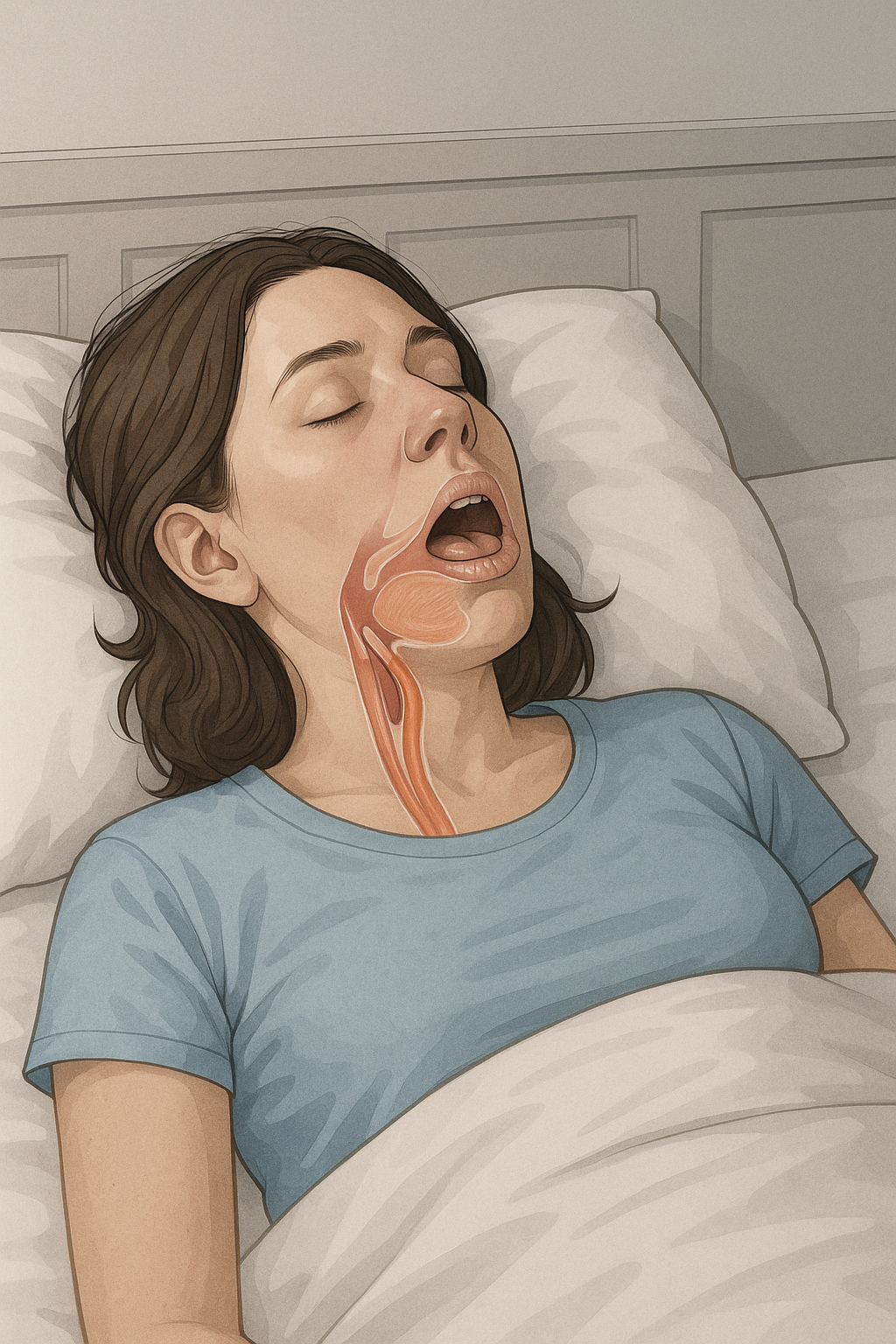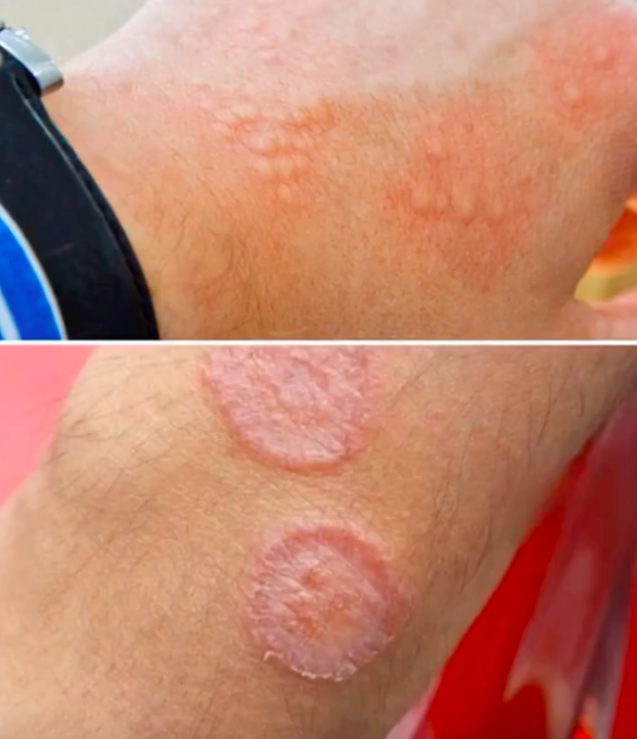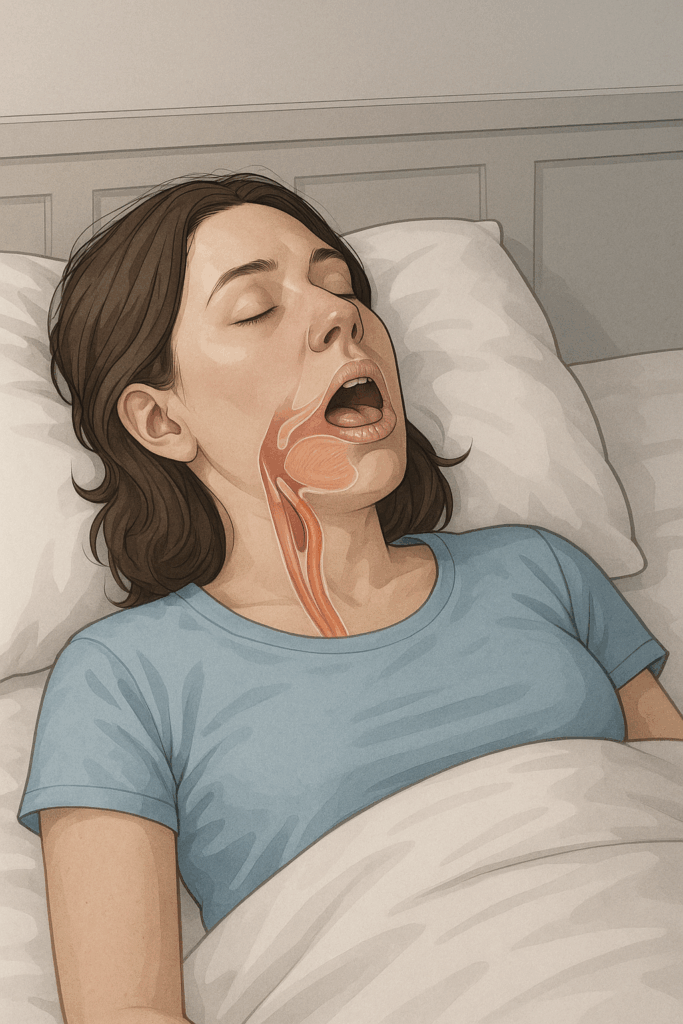Waking up in the middle of the night with a dry, sticky mouth isn’t just uncomfortable — it can be your body’s subtle way of telling you that something’s not quite right. Many people brush it off as a small nuisance, but understanding why it happens can actually reveal important clues about your overall health, hydration, and even organ function.
Dry mouth, or xerostomia, often appears harmless at first. But if it happens regularly, it could point to deeper imbalances in your digestive system, liver, or metabolism. Let’s take a closer look at what might be going on behind the scenes.

1. Digestive Issues
If you tend to snack on greasy, spicy, or heavily salted foods before going to bed, you might be setting yourself up for nighttime dryness without realizing it. These foods can disrupt normal digestion, increase acid production, and cause your body to draw water away from tissues — including your mouth — in an attempt to process the excess. As a result, you wake up dehydrated and parched.
2. Liver Function Problems
Your liver works hardest at night, filtering toxins and regulating metabolism as you sleep. But when your liver is under strain — from stress, poor diet, alcohol, or certain medications — this natural detoxification process can falter. A dry mouth during sleep can actually be an early warning sign that your liver is struggling to keep up with its nighttime workload.
3. Dehydration
One of the simplest yet most overlooked causes is not drinking enough water during the day. If your body goes into bedtime already short on fluids, it will prioritize vital organs like the heart and kidneys over your salivary glands. That’s why your mouth feels uncomfortably dry in the middle of the night or when you first wake up.
💡 Tip: Keep a glass of water by your bed, and avoid caffeine or alcohol before sleeping — both can dehydrate you further.
4. Oral Health Problems
Sometimes, the source of dryness lies right where you feel it — inside your mouth. Cavities, gum disease, and oral infections can all promote bacterial growth, especially when saliva production slows during sleep. These bacteria release acids and toxins that not only dry out the mouth but also create bad breath and an unpleasant taste in the morning.
Maintaining a strong oral care routine and regular dental checkups can make a big difference here.

4 More Causes You Might Not Expect
Diabetes
When blood sugar levels rise, the kidneys work overtime to filter and flush out the excess glucose. This process draws water from the body, leading to frequent urination and dehydration, especially overnight. One of the earliest symptoms of diabetes — or poorly managed blood sugar — can be waking up repeatedly with a dry mouth or an intense need for water.
Bile Reflux
Unlike acid reflux, bile reflux occurs when bile from the small intestine flows back into the stomach and esophagus. This can create a bitter taste and dryness in the mouth at night. Because bile reflux is often linked to liver or digestive issues, improving liver function through a balanced diet and reduced fat intake can help ease the symptoms.
Fever or Illness
When you’re sick or running a high fever, your body loses fluids much faster through sweat, breathing, and metabolism. This natural fluid loss can leave the tongue and throat feeling dry and irritated, especially if you’re sleeping with your mouth open or breathing through the nose becomes difficult. Rehydration and rest are key during recovery.
Hyperthyroidism
An overactive thyroid gland speeds up nearly every metabolic process in the body, which increases water demand and leads to faster dehydration. Even while sleeping, your body may burn through fluids at a higher rate than usual, leaving you with that unmistakable dry-mouth sensation by morning.
When to Take It Seriously
Occasional dry mouth is usually nothing to worry about — especially after a salty meal or a late-night drink. But if it happens frequently, it could point to underlying health issues like diabetes, thyroid imbalance, or liver strain.
Consulting a doctor or dentist can help identify the cause early and prevent complications such as tooth decay, chronic dehydration, or sleep disturbances.
In most cases, small daily changes — drinking more water, improving your diet, and keeping up with oral hygiene — can dramatically reduce the problem.
Your body speaks in subtle ways. A dry mouth at night might seem minor, but it’s often your body’s way of asking for care and balance. Listen closely — and you might just uncover the key to better sleep and better health.

